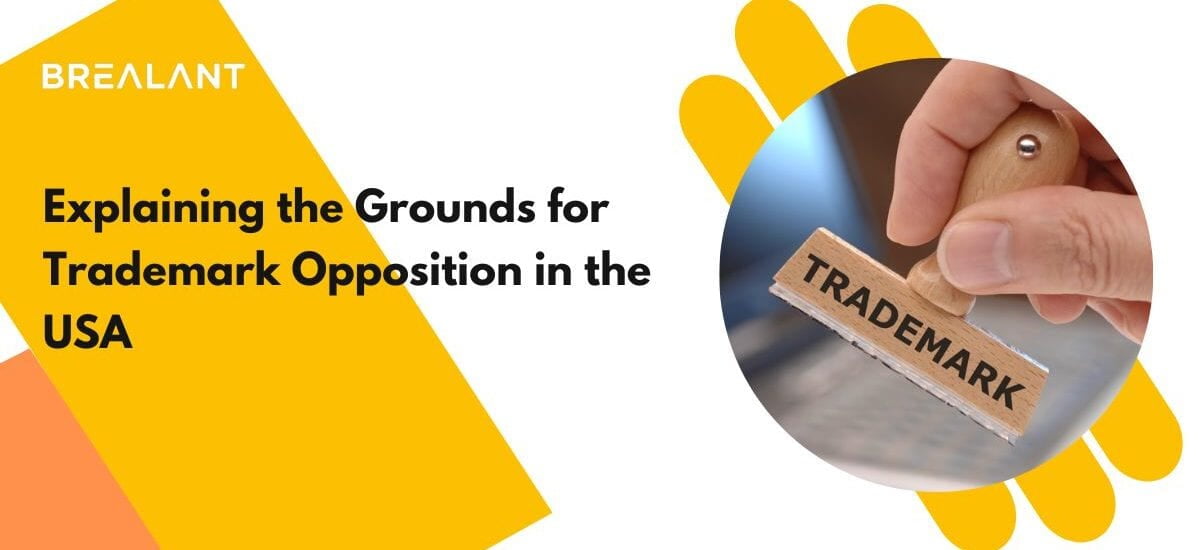
In the United States, opposition to a trademark is a legal process that allows third parties to challenge a trademark that has been applied for. This is done through an opposition proceeding conducted by the Trademark Trial and Appeal Board (TTAB). This article will provide an overview of the grounds for US trademark opposition, including the types of marks that can be opposed, the types of evidence that can be presented, and the outcome of successful opposition. Additionally, this article will discuss the basis for trademark opposition in the US and how to oppose a trademark.
If you have filed a trademark application in the USA, chances are that you will face opposition from someone and must go through the trademark opposition process. If you’re unfamiliar with trademark opposition, this article will explain why some people might oppose your application and what you can do about it.
A trademark is a unique and indefinite symbol that indicates who owns the rights to a specific name, design or commercial product. If someone else wants to use the same mark in competition with your company, they could sue you for damages. To avoid getting into this situation, filing a trademark application as soon as possible is important.
There are many reasons why someone may file an opposition to trademark your application. Sometimes, people may not like the idea of a competing company using the same name or logo. They may also feel that your mark is too similar to another one already owned by someone else. If you have followed the correct procedures and still cannot get your mark approved, there is only one way to deal with opposition: file an opposition proceeding.
On what grounds for US Trademark Opposition?
The trademark opposition process can be very difficult. You are involved in a battle with your competition and have to prove that your trademark is registered and valid. With so much at stake, knowing the grounds for trademark opposition is important.
US trademark opposition can be filed on four grounds:
- abandonment,
- lack of distinctiveness,
- dilution, and
- grafting.
These reasons for opposition provide a framework for proving the infringement or validity of a trademark.
The potential for confusion is one of the grounds most frequently cited in Opposition Proceedings. The plaintiff must possess a property interest in the mark to assert this defense. Accordingly, it must be proven that the mark has gained distinctiveness or a secondary meaning if it is not listed on the Principal Register, in which case it is presumed genuine. Additionally, it must be demonstrated that the opposer or petitioner has precedence over the defendant. The likelihood of confusion must also be demonstrated.
Functionality is a different argument that might be made. By prohibiting the use of trademark law to protect product configurations and design elements that are purely functional or utilitarian, the theory of functionality seeks to preserve competition. If a product feature is necessary for its usage or purpose, impacts the product’s price or quality, or both, it will be regarded as largely functional. Trademarks may be misleading in regard to a geographic or non-geographic subject. The test entails determining whether the phrase inaccurately describes a characteristic, value, or functionality, whether potential customers think the term accurately represents the items, and whether the inaccurate description will likely influence the consumer’s choice to buy the goods or services. This is how a trademark can be opposed.
Trademark opposition is legal procedure businesses use to oppose the registration of trademarks that may be considered similar to their own. To file a trademark opposition, you must have grounds for doing so. These grounds may include evidence that the trademark is being used without permission or that the mark is confusingly similar to one of your marks.
Conclusion
An opposition to trademark registration is a formal process in which a third-party challenge the registration of a trademark in the United States. This is done by petitioning the United States Patent and Trademark Office (USPTO). The grounds for opposing a trademark registration include the likelihood of confusion, descriptiveness, genericness, and dilution.
A trademark is a valuable asset that can protect a business’s goods and services from competitors. In the United States, any person or entity may oppose an application for trademark registration by filing a notice of opposition with the United States Patent and Trademark Office (USPTO). Get all your doubts related to the trademark opposition process cleared away by professionals. The experts at Brealant TM will provide efficient solutions for all your IP-related doubts and help you with trademark applications. Visit the official website and get the best advice.

